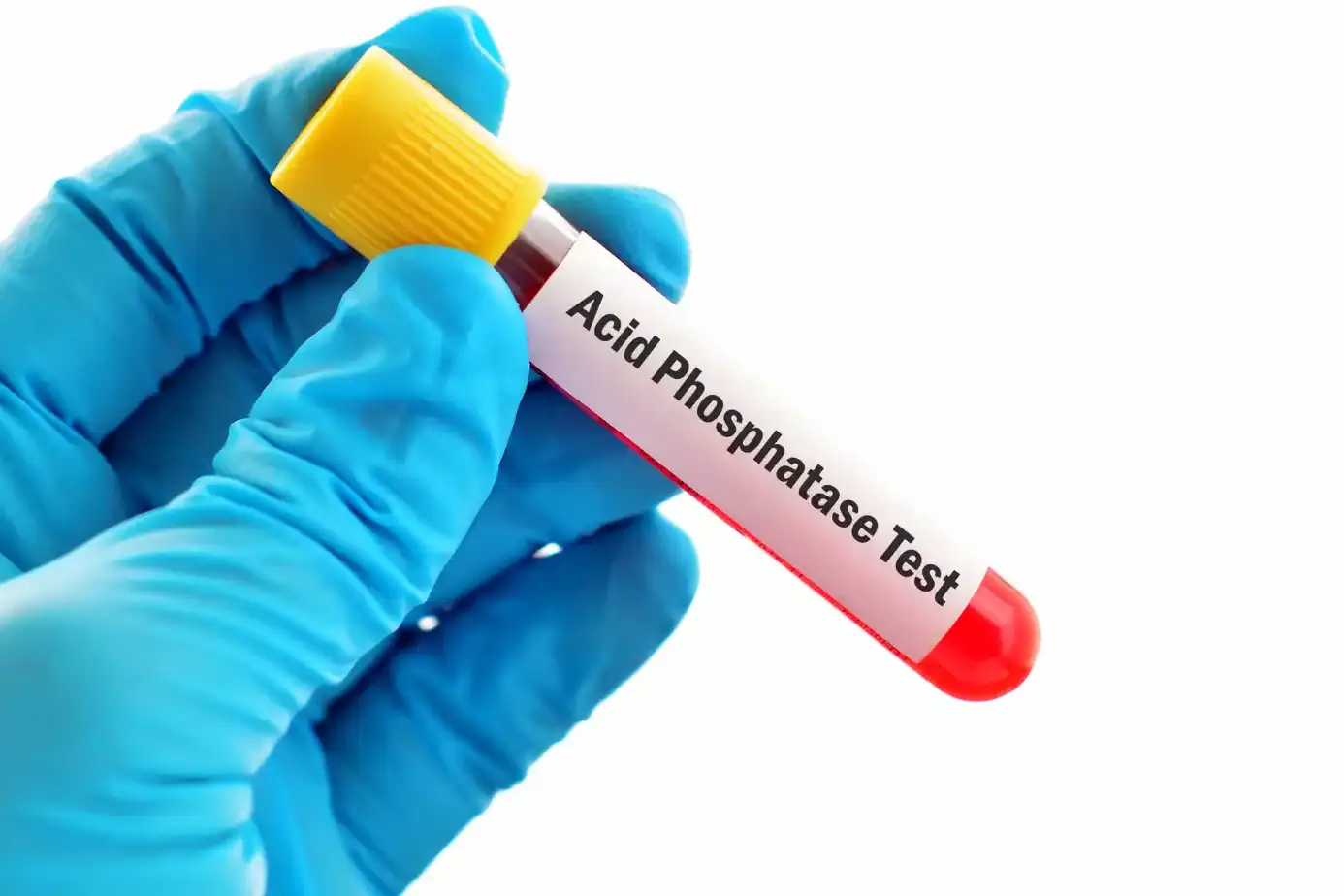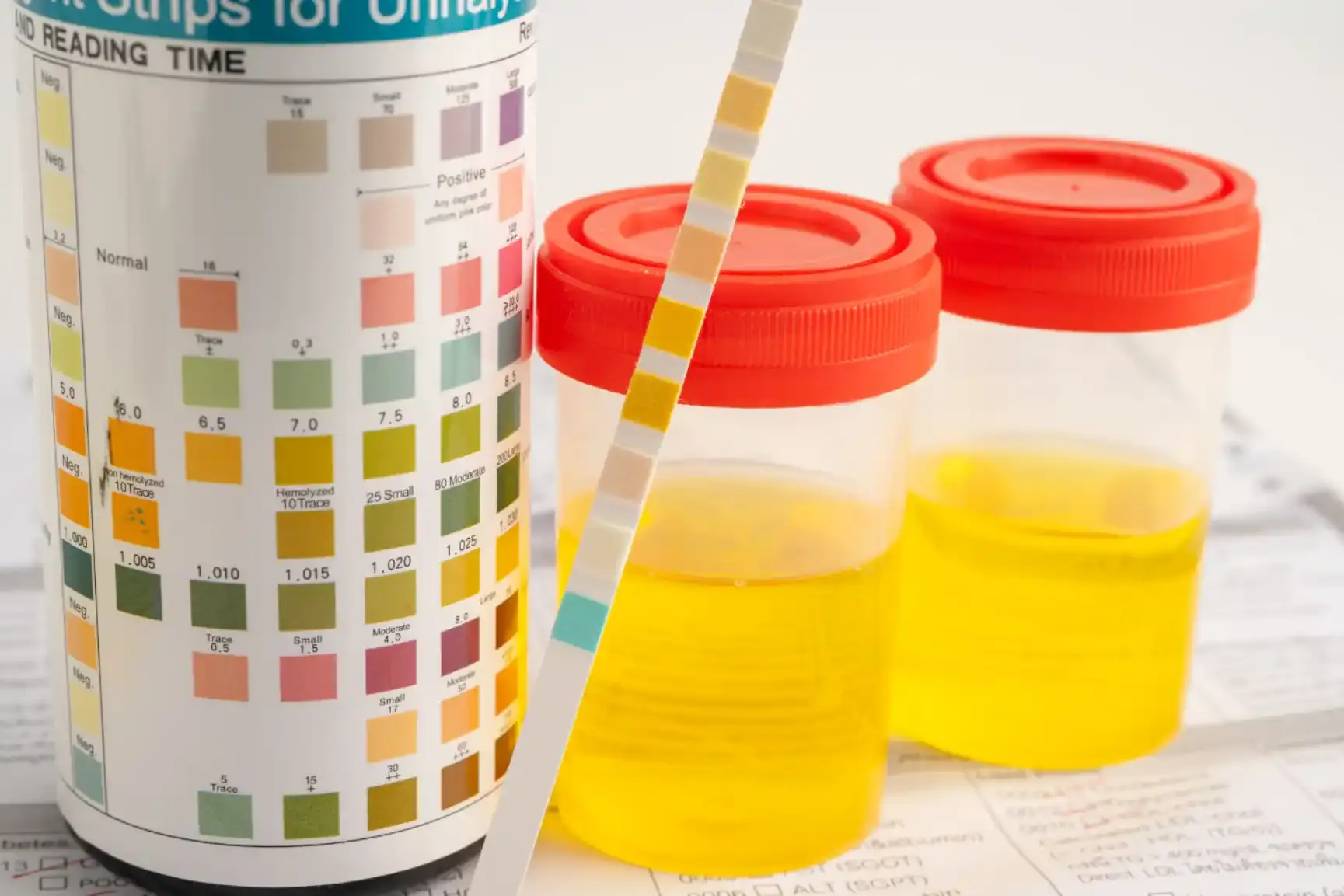Have you seen your liver enzyme levels go up during a blood test? This could mean your liver isn’t working right. It’s key to know why liver enzymes are high and when to get help for your liver health.
Table of Contents
ToggleLiver enzymes are proteins made by the liver. They help break down and process substances in your body. If the liver gets damaged or inflamed, these enzymes can leak into the bloodstream. This leads to high levels.
Common reasons for high liver enzymes include nonalcoholic fatty liver disease (NAFLD), alcohol-related liver disease, hepatitis, and cirrhosis.
If your liver enzyme levels keep going up, talk to your doctor. They can do more tests like liver function tests and scans. This helps find the cause and plan treatment. It’s important to fix the problem early to avoid serious health issues.
Overview of Elevated Liver Enzymes
Your liver is a key organ that does many important jobs. It breaks down drugs, makes essential proteins, and filters out bad toxins. To do these jobs, your liver uses enzymes, which are proteins that help chemical reactions happen. The main liver enzymes checked are alanine transaminase (ALT), aspartate transaminase (AST), alkaline phosphatase (ALP), and gamma-glutamyl transferase (GGT).
What Are Liver Enzymes?
Liver enzymes are proteins made by the liver that help with chemical reactions. If your liver gets damaged or doesn’t work right, these enzymes can leak into your blood. This can mean you have liver disease or another health problem.
Symptoms of High Liver Enzyme Levels
- Fatigue
- Abdominal pain
- Jaundice (yellowing of the skin and eyes)
High liver enzyme levels often don’t show symptoms. They might be found during routine blood tests. If your doctor finds high levels, it’s important to find out why and get the right treatment.
Common Causes of High Liver Enzymes
High liver enzyme levels often come from nonalcoholic fatty liver disease (NAFLD) and alcoholic liver disease. These conditions can make liver enzymes go up even before symptoms show up.
Nonalcoholic Fatty Liver Disease (NAFLD)
NAFLD happens when fat builds up in the liver, usually in people who are overweight or have metabolic syndrome. This fat can cause inflammation and damage to the liver, raising liver enzyme levels. In the U.S., NAFLD is the top reason for high liver enzymes, affecting about 30-40% of adults.
Alcoholic Liver Disease
Drinking too much alcohol is a big cause of high liver enzymes. Alcoholic liver disease can start with simple fatty liver and move to more serious conditions like hepatitis and cirrhosis. Drinking a lot over time can lead to inflammation and scarring in the liver, making liver enzymes go up.
NAFLD and alcoholic liver disease can get worse without clear symptoms until the liver damage is severe. Regular health check-ups and watching liver enzyme levels can catch these issues early. This allows for early treatment and care.
Metabolic Syndrome and Liver Enzymes
Metabolic syndrome is a condition with obesity, high blood pressure, high blood sugar, and bad cholesterol. It’s linked to nonalcoholic fatty liver disease (NAFLD) and high liver enzymes. Insulin resistance from metabolic syndrome causes fat to build up in the liver, leading to inflammation and damage.
It’s important to manage metabolic syndrome to improve liver enzyme levels. This means making lifestyle changes, such as:
- Achieving a healthy body weight through a balanced diet and regular exercise
- Controlling blood sugar levels to manage insulin resistance
- Lowering high blood pressure and cholesterol levels
By tackling the causes of metabolic syndrome, you can stop NAFLD from getting worse and lower the risk of liver damage. Regular checks of liver enzymes and working with your healthcare provider help spot and manage liver health issues.
High Liver Enzymes Causes

Understanding high liver enzymes requires knowing the many factors that can harm the liver. Nonalcoholic fatty liver disease (NAFLD) and alcoholic liver disease are big reasons. But, there are more things people should know about.
Viral hepatitis, like Hepatitis A, B, and C, can raise liver enzyme levels. These viruses cause inflammation and damage in the liver. Cirrhosis, a condition with liver scarring, also increases enzyme levels.
Drug and alcohol abuse are big factors too. Some medicines, even over-the-counter ones, can harm the liver. This leads to higher enzyme levels.
Autoimmune disorders, such as autoimmune hepatitis, can also cause high liver enzymes. In these cases, the immune system attacks the liver. Genetic conditions like hemochromatosis can also affect the liver and raise enzyme levels.
Knowing what causes high liver enzymes is key to getting the right treatment. By understanding these factors, people can take steps to keep their liver healthy. This helps prevent serious problems later.
In summary, NAFLD and alcohol aren’t the only causes of high liver enzymes. There are many other factors at play. By knowing these, people can work with their doctors to find the right treatment for their liver health.
Hepatitis and Its Impact on Liver Enzymes
Viral hepatitis is a group of diseases that affect the liver. It includes Hepatitis A, B, and C. These diseases can cause inflammation and damage to the liver. This leads to higher levels of liver enzymes.
Hepatitis A, B, and C
Hepatitis A spreads through contaminated food or water. Hepatitis B and C are spread by contact with infected fluids like blood or during unprotected sex. These viruses cause symptoms like fatigue, nausea, stomach pain, and jaundice, which makes the skin and eyes turn yellow.
If you think you might have been exposed or are showing symptoms, see a doctor right away. Getting help early can stop more liver damage and lower the chance of serious problems like cirrhosis. Cirrhosis can lead to liver failure.
Dealing with viral hepatitis and liver inflammation is key to keeping your liver healthy. Work with your healthcare provider to manage your condition. This helps protect your liver and keep your liver enzymes normal.
Alcohol and Drug Abuse
Drinking too much alcohol and using drugs can harm the liver. This leads to high levels of liver enzymes. Conditions like alcoholic hepatitis and toxic hepatitis are linked to this.
Alcoholic Hepatitis
Alcoholic hepatitis happens when someone drinks a lot of alcohol over time. It causes inflammation and damage in the liver. This leads to higher liver enzyme levels. It’s important to stop drinking too much to manage this condition and avoid more damage.
Toxic Hepatitis
Toxic hepatitis is caused by taking certain medicines or drugs. It also makes liver enzymes go up. Finding and stopping the toxin is key to treating this condition and fixing the liver.
Dealing with substance abuse is key to lowering liver enzymes and preventing liver problems. Getting help and changing your life can help fix the main issue.
Cirrhosis and Elevated Liver Enzymes
Elevated liver enzymes often point to a serious issue: cirrhosis. Cirrhosis is the final stage of chronic liver disease, marked by permanent liver tissue scarring. This scarring makes the liver less able to work right, raising liver enzyme levels.
Cirrhosis can stem from chronic hepatitis, nonalcoholic fatty liver disease, or alcoholic liver disease. As the liver gets more damaged and its function drops, enzymes like ALT and AST may go up.
Knowing the signs of cirrhosis is key, as it can lead to severe liver disease and failure if ignored. Symptoms include:
- Jaundice (yellowing of the skin and eyes)
- Abdominal swelling or bloating
- Digestive issues like nausea, vomiting, and loss of appetite
- Increased risk of bleeding and bruising
- Confusion or altered mental state
If you have high liver enzymes, it’s vital to work with your healthcare provider. They can find the cause and guide you on what to do next. Early treatment can stop cirrhosis and its bad outcomes.
Other Potential Causes
Some autoimmune conditions and genetic disorders can also make liver enzymes go up. It’s important to know about these less common causes for correct diagnosis and treatment.
Autoimmune Hepatitis
Autoimmune hepatitis happens when your immune system attacks the liver by mistake. This leads to inflammation and higher liver enzyme levels. Doctors often use immunosuppressant drugs to help manage this condition.
Inherited Liver Disorders
Genetic liver disorders, like Wilson’s disease and hemochromatosis, can also cause high liver enzymes. These rare diseases come from inherited genetic changes that affect liver function and metabolism.
- Wilson’s disease causes copper to build up in the liver, brain, and other organs, harming the liver and raising enzyme levels.
- Hemochromatosis makes the body take in too much iron, which can hurt the liver and increase liver enzymes.
If you have a family history of genetic liver disorders, talk to your doctor about it. They might suggest tests and monitoring to keep an eye on your health.
Testing for High Liver Enzymes

If you’re showing signs that might mean liver problems, your doctor will probably order liver function tests. These tests check the levels of key liver enzymes in your blood. Enzymes like AST, ALT, ALP, and GGT are important. High levels can mean liver damage or issues.
If the first tests show something’s off, your doctor might suggest more tests. These could be imaging scans, like an ultrasound or CT scan, to see your liver better. Sometimes, a liver biopsy is needed to find out why your liver enzymes are high and how to treat it.
It’s key to understand what your liver function tests and other tests mean for your health. Talk to your doctor about the results and any questions you have. This helps you take care of your liver health.
Treatment and Management Strategies
If you have high liver enzymes, the main goal is to find and treat the root cause. For issues like nonalcoholic fatty liver disease (NAFLD) and alcoholic liver disease, changing your lifestyle can help. These changes can lower enzyme levels and boost liver health.
Lifestyle Modifications
Living a healthy life is key to managing high liver enzymes. Here are some steps to follow:
- Eat a diet full of fruits, veggies, whole grains, and lean meats.
- Stay active with activities like walking, swimming, or lifting weights.
- Drink less alcohol or avoid it altogether.
- Keep a healthy weight by eating right and exercising.
Medications
Your doctor might suggest medicines for the condition causing your high liver enzymes. These could be:
- Drugs for NAFLD, like metformin or pioglitazone.
- Antiviral treatments for viral hepatitis, such as hepatitis B or C.
- Immunosuppressants for autoimmune hepatitis.
It’s crucial to work with your doctor to create a treatment plan. This plan should focus on your specific needs and aim to improve your liver health.
Conclusion
Elevated liver enzymes can signal a liver health issue. This could be anything from liver disease to viral infections. It’s important to see a doctor quickly. Early action can prevent serious liver problems.
Knowing what causes high liver enzymes helps you protect your liver. You might need to change your diet and exercise more. Or, you might need to follow a doctor’s treatment plan. With the right steps, you can keep your liver healthy and feel good.
Your liver is key to your health. It’s important to look after it. By learning and acting early, you help your liver work well. This keeps you healthy and happy for a long time.
FAQ
What are the common causes of elevated liver enzymes?
Elevated liver enzymes can come from nonalcoholic fatty liver disease (NAFLD), alcohol use, and viral hepatitis. Other causes include cirrhosis, drug or alcohol abuse, and certain medicines. Metabolic syndrome and genetic conditions can also raise liver enzyme levels.
What are the symptoms of high liver enzymes?
High liver enzymes might show as fatigue, stomach pain, or jaundice. But often, there are no clear signs. It’s key to talk to your doctor to find out why and get the right treatment.
How are elevated liver enzymes diagnosed?
A blood test called a liver function test finds elevated liver enzymes. This test checks levels of liver enzymes like AST, ALT, ALP, and GGT. If these are high, your doctor might order more tests, like scans or a liver biopsy, to see why.
What is the treatment for high liver enzymes?
Treating high liver enzymes means fixing the root cause. For NAFLD and alcohol-related liver issues, losing weight, eating right, and drinking less can help. Sometimes, doctors prescribe medicines to manage the condition and reduce liver inflammation.
Can metabolic syndrome contribute to elevated liver enzymes?
Yes, metabolic syndrome, which includes obesity, high blood pressure, high blood sugar, and bad cholesterol, is linked to NAFLD and high liver enzymes. Insulin resistance in metabolic syndrome can cause fat to build up in the liver, leading to inflammation and damage.
How can viral hepatitis affect liver enzymes?
Viral hepatitis, like Hepatitis A, B, and C, causes inflammation and damage to the liver, raising liver enzyme levels. Finding and treating viral hepatitis quickly is key to preventing more liver damage and serious problems like cirrhosis.
Can alcohol and drug abuse lead to high liver enzymes?
Yes, too much alcohol or drug use can cause high liver enzymes. Alcoholic hepatitis from heavy drinking hurts the liver. Toxic hepatitis from certain drugs or medicines can also damage the liver and raise enzyme levels.
How does cirrhosis affect liver enzymes?
Cirrhosis, a severe liver disease with scarring, can also increase liver enzymes. As the liver gets worse and works less, enzyme levels go up. Finding and managing the liver condition early is important to stop cirrhosis from getting worse.
About The Author

Medically reviewed by Dr. Nivedita Pandey, MD, DM (Gastroenterology)
Senior Gastroenterologist & Hepatologist
Dr. Nivedita Pandey is a U.S.-trained gastroenterologist and hepatologist with extensive experience in diagnosing and treating liver diseases and gastrointestinal disorders. She specializes in liver enzyme abnormalities, fatty liver disease, hepatitis, cirrhosis, and digestive health.
All content is reviewed for medical accuracy and aligned with current clinical guidelines.
About Author | Instagram | Linkedin





